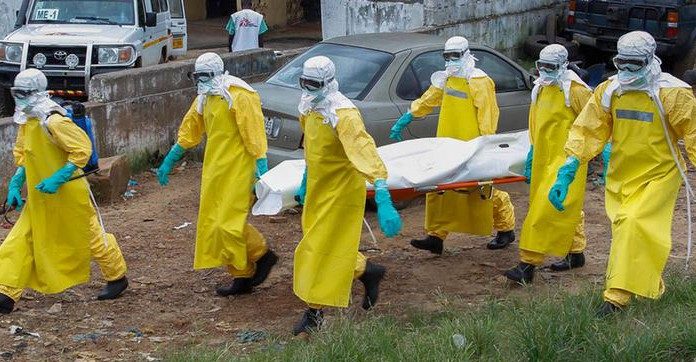
The toll in the Ebola epidemic has risen to 5,420 deaths out of 15,145 cases in eight countries, the World Health Organization (WHO) said on Thursday, with transmission of the deadly virus still “intense and widespread” in Sierra Leone.
The figures, through Nov. 16, represent a jump of 243 deaths and 732 cases since those issued last Friday, and cases continue to be under-reported, the WHO said in its latest update.
Sierra Leone, one of three countries hit hardest by the epidemic, confirmed 533 new cases in the week leading up to Nov. 16, WHO said, accounting for much of the overall increase. It also reported 63 additional deaths since last Friday. “Much of this was driven by intense transmission in the country’s west and north,” the WHO said. The capital Freetown, which accounted for 168 new confirmed cases, and nearby Port Loko were particularly hard-hit.
A Cuban doctor infected with Ebola in Sierra Leone is expected to be flown to Switzerland in the next 24 hours for hospitalization in Geneva, Swiss health authorities said on Thursday. He is the first Cuban known to have contracted the disease.
Meanwhile, the outbreaks in Guinea and Liberia currently appear to be driven by intense transmission in several key districts, the WHO said, citing N’Zerekore and Macenta in Guinea and Montserrado in Liberia, which includes the capital Monrovia.
Lack of treatment beds, personnel driving widespread transmission
In the three most affected countries – Guinea, Liberia and Sierra Leone – 1,159 beds are now operational in 18 Ebola treatment centers, or 25 percent of beds planned, according to the U.N. agency. But only 13 percent of Ebola patients in Sierra Leone are in isolation, its figures show.
Lack of available treatment beds has been cited as one of the primary factors driving transmission in Sierra Leone. While Sierra Leone accounts for almost two-thirds of new cases, there are only 288 beds spread across four Ebola Treatment Centers (ETCs) in the country.
Furthermore, the U.N. Mission for Ebola Emergency Response (UNMEER) recently reported that an average of 50 percent of cases of the Ebola virus disease (EVD) are not being reported across Sierra Leone, so the majority of patients are not making into treatment units.
Authorities in Mali have reported 6 Ebola cases including five deaths, the WHO said. All contacts of its first case, a two-year-old girl who died in October, have survived the 21-day incubation period. The remaining cases have been in Nigeria, Senegal, Spain and the United States, where isolated clusters have broken out but have since been brought under control.
Liberian President Ellen Johnson Sirleaf said on Wednesday that her government is gaining the upper hand in the fight against Ebola, but warned against complacency or any reduction in international support. WHO said that in Liberia, 80 probable cases were reported in the week leading up to November 15. “Nationally, on average, between 10 and 20 laboratory-confirmed cases are being reported each day.”
Despite signs of progress in Liberia, the Red Cross warned last week that the outbreak is flaring up in “new villages and new locations” across West Africa, while recruiting volunteers to go to the affected region has become nearly impossible. Cautioning against complacency, Birte Hald, a representative of the International Federation of Red Cross and Red Crescent Societies told the Associated Press: “It is absolutely premature to start being optimistic.”
